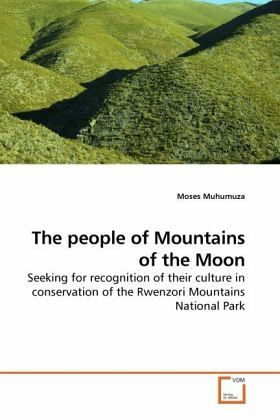
The people of Mountains of the Moon
Seeking for recognition of their culture in conservation of the Rwenzori Mountains National Park
Versandkostenfrei!
Versandfertig in 6-10 Tagen
32,99 €
inkl. MwSt.

PAYBACK Punkte
16 °P sammeln!
To date conservation in Africa has been very much the domain of the biologist, but the current ecological crisis in Africa and the failure of past conservation approaches many of which were exogenous in nature demands a radical new appraisal of conventional practices. This book provides a new inter-disciplinary look at the practice of Biodiversity conservation in Africa. It brings together understanding of conservation from a cultural perspective hence bringing social scientists, anthropologists, historians and conservation biologists for the first time. The book sheds light on the previously ...
To date conservation in Africa has been very much the domain of the biologist, but the current ecological crisis in Africa and the failure of past conservation approaches many of which were exogenous in nature demands a radical new appraisal of conventional practices. This book provides a new inter-disciplinary look at the practice of Biodiversity conservation in Africa. It brings together understanding of conservation from a cultural perspective hence bringing social scientists, anthropologists, historians and conservation biologists for the first time. The book sheds light on the previously neglected but critically important social aspects of conservation thinking in Africa that includes indigenous knowledge, belief and practices. This new approach to conservation, the book argues, cannot deal simply with the survival of wildlife and species habitats, for the future of African wildlife is intimately tied to the future of African rural communities. The book emphasizes an urgent need for rethinking and revision of the past conservation approaches so that a new approach borrowing from a cultural perspective is promoted not as a competitive approach but rather a complementary one.












